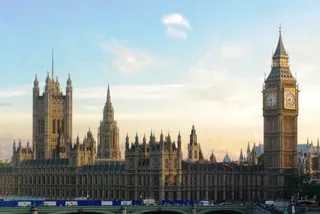
The Election: The Unmentioned & What Lies Beyond
There is no economy so strong that politicians can’t screw it up. That in a nutshell is the UK’s misfortune.
At this stage in the campaign no one has a clue who will win the election. Never in a generation has the picture been so confused nor the possible outcomes so varied. Indeed the only election prediction to be made with any certainty is that those leaders who fail to do well are likely to be fired. If David Cameron fails to secure another Tory led Government then he will surely be turfed out to be replaced most probably by Teresa May, given that Boris is viewed with suspicion by many of the heartland Tory Membership. For his part Ed Miliband could not be expected to survive a defeat given he has found it hard enough to stay in position this long. My tip for his successor is that Labour would seek to reinvent itself under Chukka Umuna. And Nick Clegg is likely to move on too if the Lib Dems find no one to coalesce with. His ousting might be less brutal, but he has become too closely identified with the Tories and his party will surely feel it is time for a change.
But while no one knows who will win it is still a two horse race – the next Government will either be led by the Conservatives or led by Labour. No other outcome is remotely likely. It is therefore possible to frame two distinct economic scenarios, neither of which is particularly cheerful.
The problem with a Conservative led Government is that it will set the country on a course for a referendum on EU membership and the uncertainty this will engender has the potential to be disastrous. This was shown by the referendum last year on Scottish independence. Investment ground to a halt as voting day approached. No one was prepared to spend money until they knew the outcome and whether Scotland was to remain in the United Kingdom.
This uncertainty spread well beyond Scotland to cast a shadow over the whole of Britain. Estate agents who sell high end London properties to wealthy Russians and Middle East investors reported that the uncertainty over the future of the United Kingdom had affected their business too. So if a relatively minor event like a Scottish vote can cause that much disruption how much greater will be the collapse of foreign investor confidence in the run up to an EU referendum where the stakes are so much higher? It is no exaggeration to say that the freezing of investment as people wait upon the outcome could be enough to derail the entire economy.
The alternative of a Labour led Government under Ed Miliband brings a different set of problems. Here the issue is not the avowedly left wing nature of what is proposed in the manifesto because what is said on the campaign trail rarely survives the realities of office. Rather the danger lies in the reaction of markets which might respond to the prospect of a more free spending Government by becoming less willing to buy the UK government bonds which have to be sold to finance that spending.
Any such reluctance would provoke an upward spike in interest rates – reluctant buyers need to be offered greater reward – but this in turn could have serious effects in the bond markets as a whole. Over the past few years hundreds of billions of pounds and dollars have poured into retail investment funds which have been invested in bonds across the world, often at astonishingly low rates of interest.
The end investors whose money this is do not expect interest rates to stay low for ever but they expect to be able to sell when they see rates move against them. They believe rightly or wrongly that they will be able to get out at a moment’s notice so they will not get caught by sudden hike in rates which would of course severely undermine the capital value of the funds.
They are in for a nasty shock because there is a problem with liquidity. Everyone will not be able to sell at once. These retail investors might well be able to sell to their fund managers, but the fund managers in their turn will have a devil of a job selling the underlying bonds because once rates are seen to be rising there will be no buyers. That is why authorities like the IMF and the bank of England have begun sounding off about the systemic risks caused by asset managers. They may not have the ready cash to cope with the flood of redemptions.
Compounding the problem is a shortage of market makers. Investment banks 10 years ago could be relied upon to take stock on their books and then go looking for a buyer; today they are much less willing. The result is that no one will be able to sell, the market will be flooded with unwanted stock and interest rates which will have to take the strain, are likely to move sharply higher. There could be a violent swing in interest rates, far more violent than anything justified by the fundamentals and one which could cause severe economic dislocation.
It is interesting listening to the pre-election economic debates with their emphasis on whether this minor promise or that irrelevant pledge has been properly thought through and costed. For the most part their economic sparring is trivial and irrelevant. But you can safely bet that the real risks as outlined above will almost certainly not get a mention.
Have an enquiry?
Send us a message online and we'll respond within the hour during business hours. Alternatively, please call us our friendly team of experts on +44 (0) 20 7607 7070.
